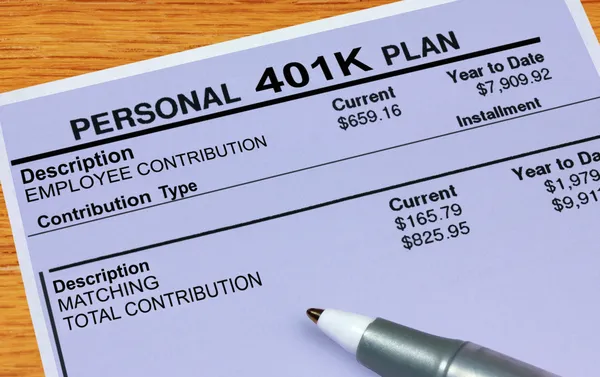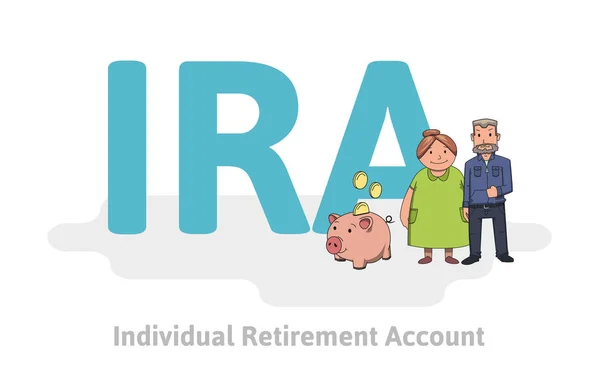Highlights
- A 401k deferral is the portion of salary set aside for retirement before taxes.
- There are restrictions on how much you can contribute to your 401k according to the IRS.
- Your retirement savings can be significantly increased if your employer matches your contributions.
- Your income, age, and financial goals impact how much you can defer.
- Traditional and Roth 401k plans offer different tax benefits for contributions.
Are you wondering how much of your income should go into your 401k plan and how it’s calculated? Perhaps you’ve already started saving for retirement and are trying to understand the factors influencing your contributions. Understanding how your 401k deferral is calculated can help you make the most out of your retirement savings.
In this blog post, we’ll discuss the factors that affect your 401k deferral calculation and provide insights so you can make informed decisions.
What is a 401k Deferral?
Before we explore the factors that affect your 401k deferral calculation, it’s important to understand what a deferral is.
A 401k deferral refers to the salary you set aside in your 401k retirement account. This amount is deducted from your paycheck before taxes are applied, so you save for retirement while reducing your taxable income.
The amount you choose to defer is typically expressed as a percentage of your salary. For example, you might defer 5% or 10% of your earnings into your 401k plan.
How is My 401k Deferral Calculated?

When calculating your 401k deferral calculation, several factors may impact how much you can contribute and how much you’ll accumulate for retirement. These factors include:
- Your annual income
- The IRS contribution limits
- Employer matching contributions
- The type of 401k plan you have (traditional or Roth)
- Your age
- Your financial goals and retirement plan
What Role Does My Income Play in 401k Deferral?
Your annual income decides how much you can contribute to your 401k. The more you earn, the more you can defer into your account.
Most employers allow you to defer a percentage of your salary. So, if you earn $50,000 annually and choose to defer 6%, you’re contributing $3,000 to your 401k each year. However, if you receive a raise and earn $60,000, that same 6% deferral will now contribute $3,600 to your retirement savings.
How Do IRS Contribution Limits Affect My 401k Deferral?
Every year, the IRS sets 401k contribution limits. This decides how much you can contribute to your 401k plan. For example, in 2024, the maximum amount an individual can contribute to their 401k is $22,500.
If you’re under 50, you’ll need to stay within this limit. However, if you’re over 50, you can take advantage of “catch-up contributions,” which allow you to contribute an additional $7,500, up to $30,000. These limits greatly affect how much you can defer, no matter how high your income is.
Does My Employer Match Affect My 401k Deferral?
Employers offering matching contributions can greatly increase the amount going into your 401k. Typically, employers match a percentage of the amount you defer up to a specific limit. Your employer can match 50% of your contributions to 6% of your salary.
So, if you defer 6% of your $50,000 salary, which is $3,000, your employer would contribute an additional $1,500 to your 401k.
Should I Consider a Traditional or Roth 401k?
The type of 401k you choose, Traditional or Roth, can also impact your deferral. Both options offer tax advantages but in different ways:
- Traditional 401k: Contributions are made with pre-tax dollars, decreasing your taxable income for the current year. However, when you withdraw funds in retirement, those withdrawals will be taxed as income.
- Roth 401k: Contributions are made with after-tax dollars, meaning you don’t get a tax break now, but withdrawals in retirement are tax-free, assuming you follow the rules for qualified distributions.
How Does My Age Affect My 401k Deferral?
Your age can also impact how much you can defer to your 401k. The closer you are to retirement, the more you’ll want to contribute to ensure you have enough saved.
As mentioned earlier, individuals 50 or older can take advantage of “catch-up contributions,” which allow them to exceed the regular IRS limits. This is especially useful to boost your retirement savings before leaving the workforce.
What Are My Financial Goals and Retirement Plans?
Lastly, your financial goals and retirement plans are critical in determining how much you should defer. Consider the following questions:
- When do you want to retire? If you plan to retire early, you may need to contribute more aggressively.
- What kind of lifestyle do you want in retirement? If you have plans to travel, move to an expensive area, or have other financial goals in retirement, you’ll need a larger savings cushion.
- Do you have other sources of retirement income? You might not need to defer as much if you expect to have other income sources such as pensions, Social Security, or investments.
What Happens During a Retirement Plan Transition?

In some cases, you may switch jobs and need to deal with a retirement plan transition. During this process, it’s important to transfer your savings to your new plan smoothly. You might also face situations where you consider a simple IRA to 401k rollover, which allows you to move retirement savings from a simple IRA into a 401k. Be sure to follow the IRS 401k guidelines during this process to avoid penalties or taxes.
What About Prorated 401k Deferrals When Simple IRA Terminates Same Year?
A common scenario affecting your deferral is a prorated 401k deferral when simple IRA terminates the same year. This happens when you transition from a simple IRA to a 401k within the same year. If you’ve contributed to a simple IRA for part of the year, your 401k contributions may be prorated based on how much you’ve already deferred into the simple IRA.
Understanding how this prorated 401k deferral when Simple IRA terminates same year works is essential to ensure you’re not exceeding the IRS contribution limits across both plans. It’s also important to follow the simple IRA termination rules to avoid penalties.
How Do I Maximize My 401k Deferral?
Now that we’ve covered the factors affecting your 401k deferral calculation, you may wonder how to maximize your retirement contributions. Here are a few tips:
- Take full advantage of employer matching: Always try to defer at least enough to get the full match from your employer. It’s essentially free money!
- Increase your deferral percentage with raises: When your salary increases, increase your deferral percentage to maintain your saving momentum.
- Review your plan regularly: It’s a good idea to periodically review your 401k contributions and adjust based on changes in your financial situation or goals.
- Consider a financial advisor: If you’re unsure how much to defer or which type of 401k is best for you, a financial advisor can help you create a personalized retirement strategy.
Summary
Your 401k deferral calculation is a crucial part of your retirement savings strategy, and understanding the factors that influence it can help you make smart choices. From your income and the IRS contribution limits to employer matching and your retirement goals, these factors all play a role in determining how much you can contribute.
Looking to protect and grow your investments? We make it easy to diversify with gold, precious metals, cryptocurrencies, and real estate IRA. With over 15 years of experience and top IRA partners, our gold investment company helps you build a strong portfolio ready for any market.
FAQ
Can I Move My Solo 401k To Another Company?
Yes, a Solo 401(k) plan can be transferred between brokerage firms or custodians without incurring taxes. This type of transfer is not considered a taxable event or rollover.
Disclaimer
The content provided on this blog is for informational and educational purposes only and does not constitute financial or investment advice. While we strive to provide accurate and up-to-date information, you should not rely on this content as a substitute for professional financial advice. Any financial decisions you make are done so at your own risk, and we encourage you to consult with a licensed financial advisor before making any investment decisions.
The views and opinions expressed in this blog are solely those of the authors and do not necessarily reflect the views of any affiliated entities. The information presented here is not intended as a solicitation or recommendation to buy, sell, or hold any financial product.


